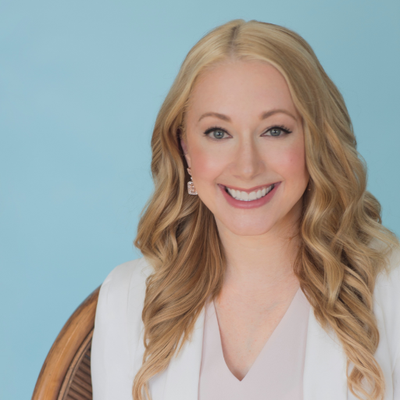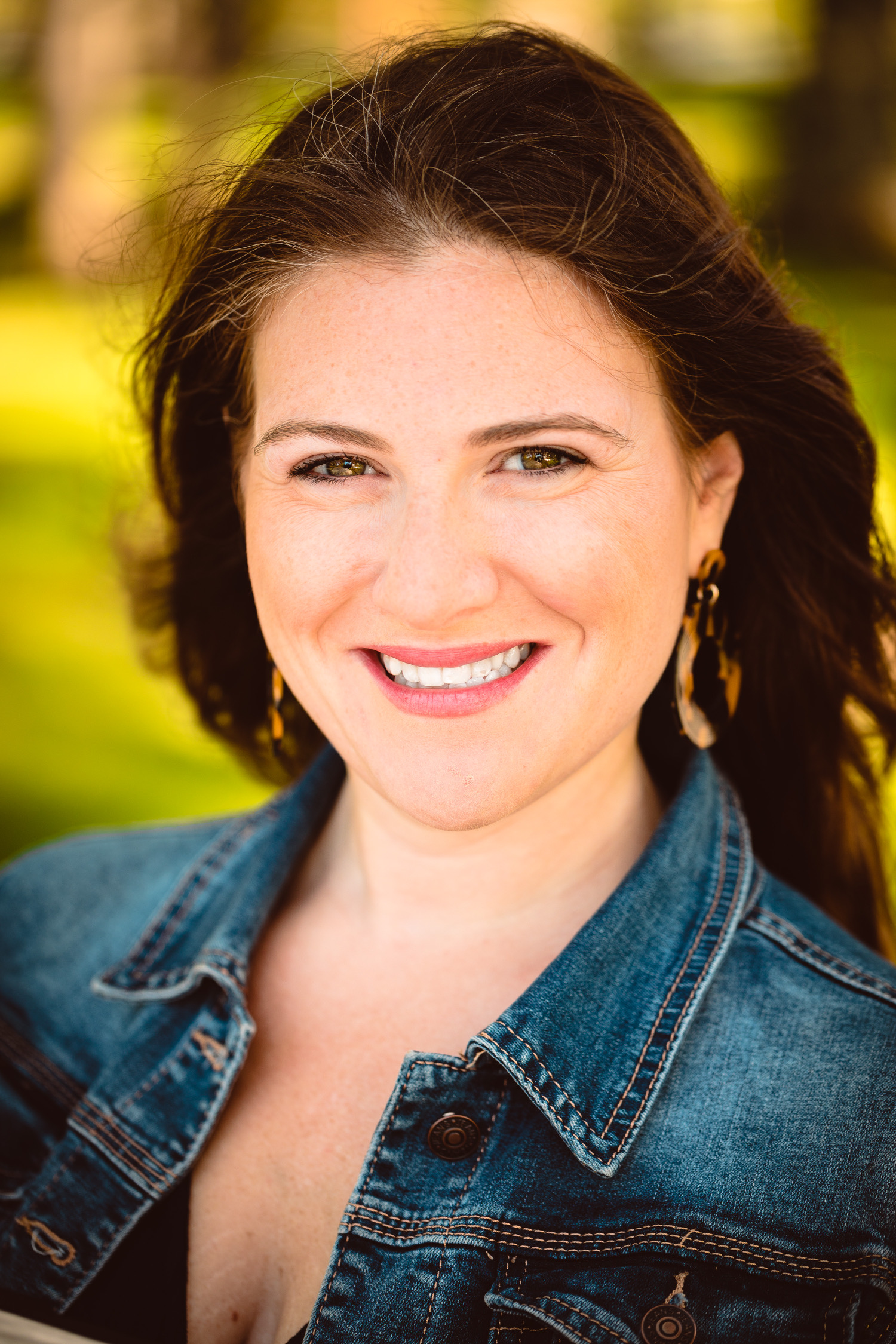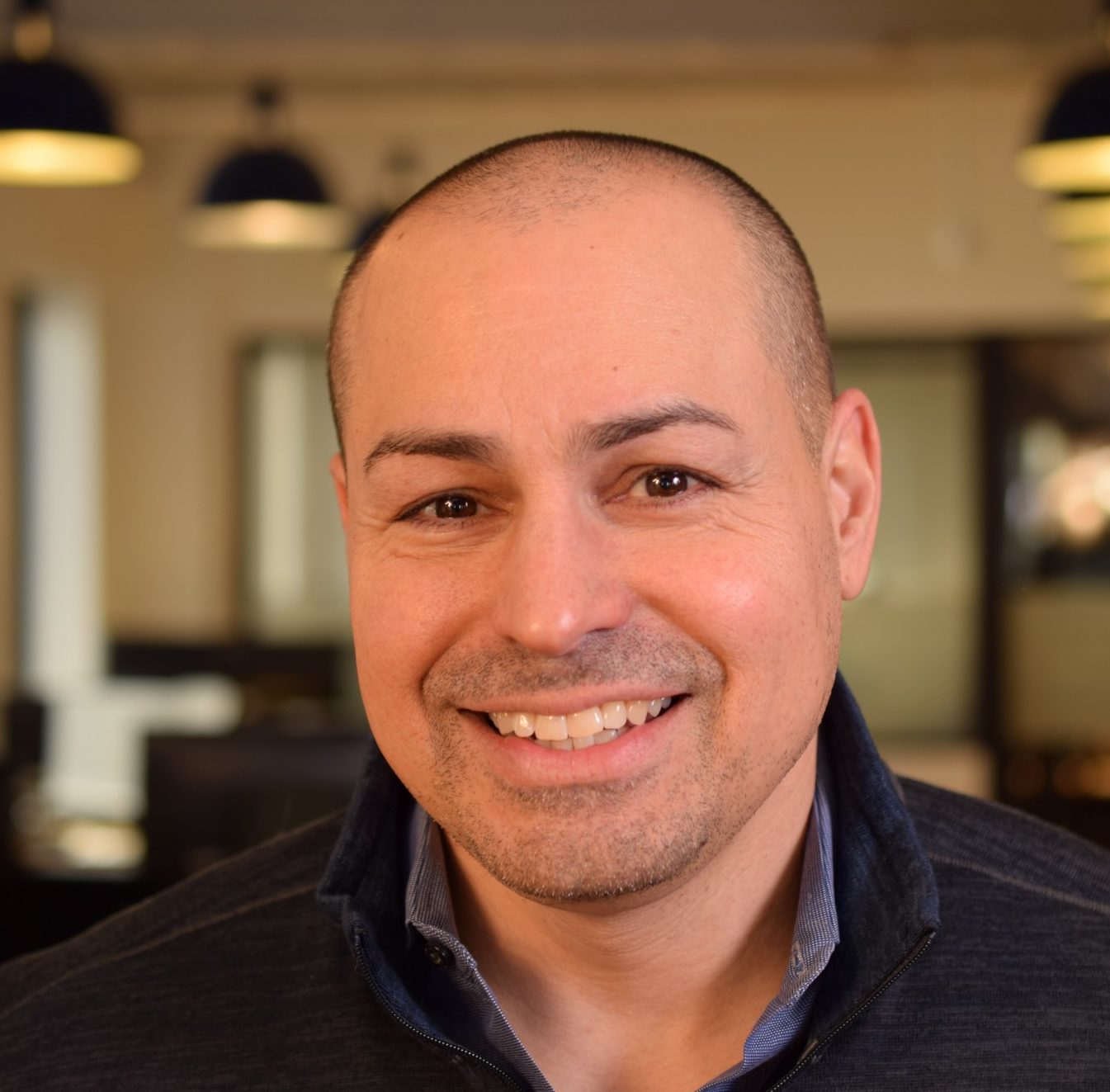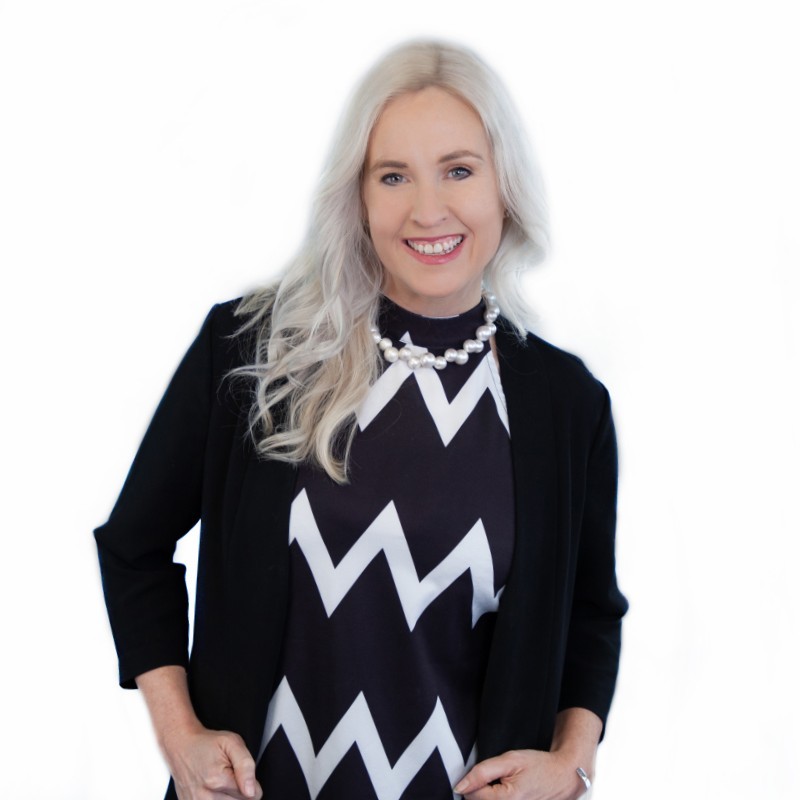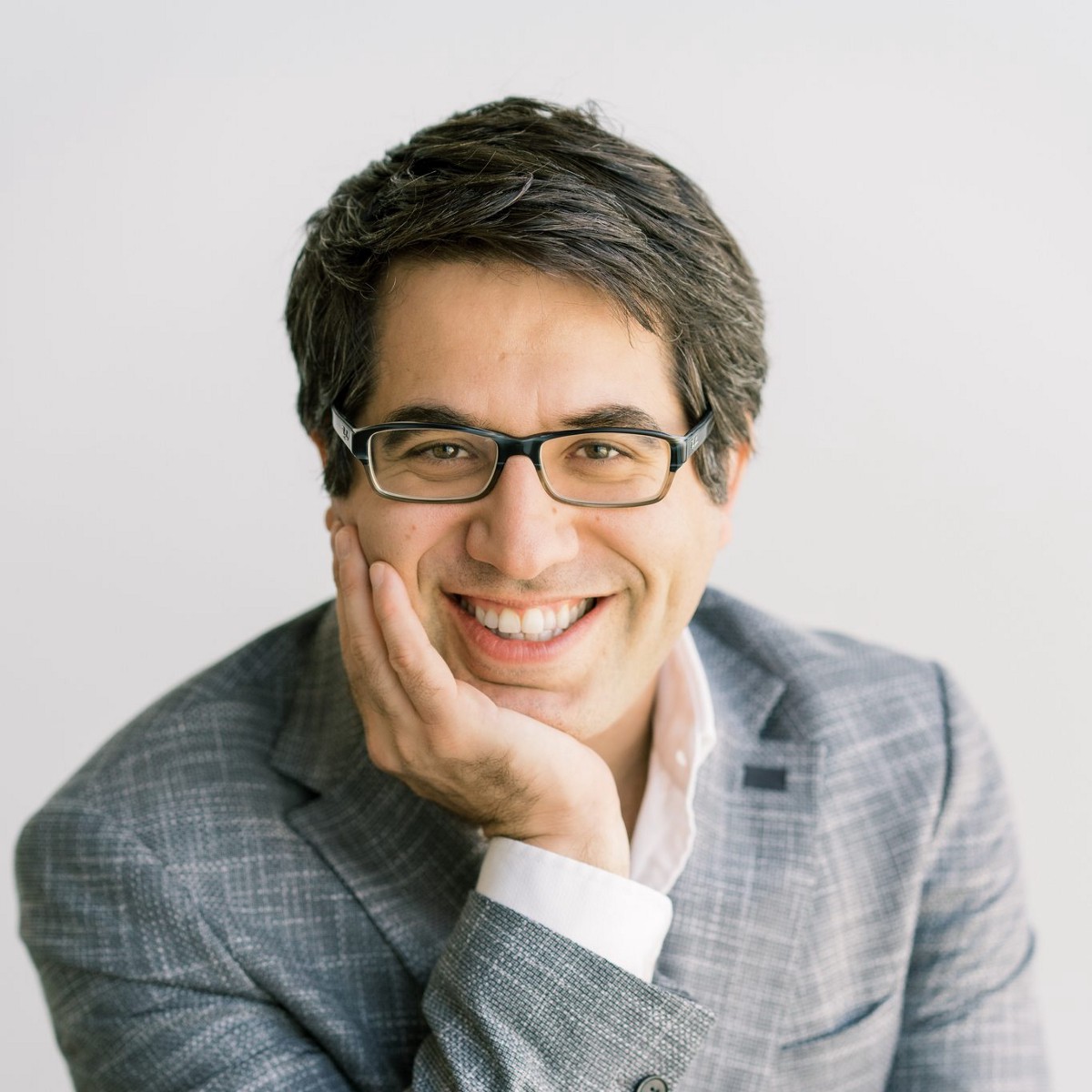At the heart of most genuinely good leaders out there is a healthy amount of self-awareness. If you’ve ever worked with someone who was highly self-aware, it was likely a very positive experience.
Self-awareness is something you can build, but you are never done. There’s always more to learn and more to know about yourself and the way you interact with the world.
Tasha Eurich is the expert on building self-awareness at work and she’s got a lot of great ideas to offer.
What we learned:
-There is internal self-awareness (knowing how you tick) and external self-awareness (knowing how others perceive you). Don’t get them confused.
-Real self awareness is built incrementally and steadily over time.
-You can’t be highly self-aware AND a bad boss.
-There’s always something new to learn about yourself.
-Self-awareness is key to being able to adapt to the future.
What you can do right now?
-Seek out something new about yourself.
-When presented with something negative about yourself, recognize that there’s always new stuff out there.
Key Quotes
“The more time people spent introspecting, the less self aware internally they tended to be.”
Links
Insight – the book
Today, our guest is Dr. Tasha Eurich. She’s a corporate psychologist and author of the book “Insight: The Surprising Truth About How Others See Us, How We See Ourselves, and Why the Answers Matter More Than We Think.” And this episode is Work Minus Ignorance. Hi, Tasha. How are you?
Hi, great. Great to be here.
I think this is going to be an excellent conversation because we’re talking about a very important topic about how to reveal what’s going on in your own mind. Now, I have nothing to learn from what you’re going to say. So, this is all for other people, not for me. But I want you just to introduce yourself, about your book and your work.
I’m an organizational psychologist, which means at a most basic fundamental level, I help people be better bosses. But I have a background in scientific research and also working in the Fortune 500 world. So, what I really love about what I do is I get to learn all this cool stuff. And then I get to translate it to hopefully help make the world better and help make leaders more successful and future ready. And “Insight” is my second book. It came out just a few years ago. But what I was starting to see was this very distinct pattern that also was very unusual. In my work as an executive coach, I typically work with the top one or two levels of mid sized to large organizations. And I would see these amazing successful people who sometimes they were getting in their own way a little bit because of a lack of self awareness. Sometimes in a very dramatic case, they were about to be fired because they were getting in their way so much, they didn’t even really appreciate it. But what I was able to witness, not necessarily because I’m such a great coach, but because these leaders were so committed and courageous to seeing themselves clearly was that being able to do that, being able to clarify who they were, what they stood for, how they fit into the world, and probably most importantly for leaders, how they were seen by others, they were able to make these just dramatic and remarkable transformations in their level of success, and frankly, just having a better life. And what I saw all around me was in direct contradiction to that. I think most of us can agree, at least anecdotally, that people seem to be getting less and less self aware and not more self aware. So, what I wanted to do about five or so, almost six years ago now, was to scientifically study this buzzword of self awareness. And what I wanted to know was, what is it really? Where does it come from? Why do we need it? And how do we get more of it? And so, the book is the culmination of that research. And what’s been really interesting, at least for me, is a lot of what we found flies in the face of traditional wisdom about what it takes to know ourselves. So, that’s why I think science can be really helpful. It’s not just Tasha’s opinion.
Sometimes we should listen to science, right?
Yeah. What did the data actually tell us? And so, I’m so passionate about sharing that with the world.
Cool. Let’s get into that. Conventional wisdom, self awareness, I just need to sit and reflect more, maybe do some journaling and think about what happened and I’ll get the right answer, right?
Yeah. So, that is, as it turns out, one of the biggest and most persistent myths about building self awareness. Just to take a step back, I think it’s helpful definitionally to say what do we mean when we say self awareness. And what my team has found is that when we’re self aware, we generally have two types of independent knowledge about ourselves. One is something we call internal self awareness, which is what most people think, knowing who I am and what makes me tick. But then at the same time, we also have something called external self awareness, which means knowing how other people see us. And that internal self awareness piece, I think it’s as close to gospel as you can get, right? If I just go sit on a mountaintop, and I maybe sit in the lotus position for extra credit. And I ponder those essential questions about what makes me me or why I do what I do then I’ll see myself clearly. And our research really early on was pretty shocking in terms of what we found. I actually thought we did our analysis wrong the first couple times. We found that, in a nutshell, people, basically the more time people spent introspecting, that is trying to uncover the meaning and motives behind what they did and how they felt and what they thought, the less self aware internally they tended to be. And at first, I was having this huge crisis of, like, “Oh, my god, maybe self awareness is bad. Maybe I should be writing a book about how we should not be self aware.” And really, what we found was that it’s not that introspection or thinking about ourselves doesn’t work. It’s just that the way most of us are doing it is wrong, to put it bluntly. So, one example is journaling. There are some pitfalls of journaling that can really suck the insight right out of the experience. So, it’s not A to B. Similarly, spending time thinking about ourselves doesn’t necessarily mean that we’ll have insight and sometimes it can lead us on a wild goose chase away from the truth about ourselves. So, I think that just gets back to this idea that we really need to make scientifically informed decisions about how we approach this lifelong process of becoming more self aware.
So, when you’re talking about self awareness, you’re defining it as how closely does my opinion of myself or my thought about myself match up with the people around me?
So, that is a common way to define self awareness. It is not something that I ascribe to and here’s why. We found that both of those pieces of information are correct and important. So, it’s very common, I think, especially for a lot of leadership gurus to say, “Well, the only thing that matters is how other people see you and other people are correct. And whatever you think is compared to them because they’re right and you’re wrong.” And it’s not that simple. So, what I encourage people to think about self awareness as is, instead of looking at a mirror and knowing if what you see is accurate, it’s almost like everybody remembers from middle school science class a prism, right? And if you shine white light through one end, light comes out the other end in a rainbow. And that’s the way I like to look at self awareness is there isn’t one truth. And all of those colors are who we are, and they’re different variations and shades of who we are. And they’re all important. Just in the same way that only caring what we think about ourselves is wrong, right? Obviously unless we live in a cardboard box and never talk to anyone or work with anyone, it does matter what other people think of us. So, it’s that delicate balance of seeing ourselves clearly and then adding on an understanding of how we’re seeing.
So, when you’re interacting with people and trying to build self awareness that they have, do you find that it’s that light bulb moment for most people that it’s, like, one significant event is, “Oh, my gosh. I realized it now”? Or is it more of this long term, slow point by point that they build that self awareness?
That’s such a good question. So, I actually thought it would be that heavens parting moment of insight when we actually studied people who became highly self aware who didn’t start out that way. And part of what I wanted to figure out was, what are these people doing differently? And what we discovered was, I think it’s good news for all of us, which is we don’t have to sit around and wait for this big eureka moment. Real self awareness is built incrementally and steadily over time. So, if you imagine, not putting the pressure on yourself of I’ve got to go from 0 to 100 in two days. But instead of that, maybe what would it look like if I was 1% more self aware every week? And then you think about what that looks like over the course of months and years. And that’s really how we make these transformational improvements. So, to me, I don’t know about your listeners, but as a Type A overachiever, I found that really comforting. It’s okay to get these small insights and add them up. And it really can make a huge difference.
I found in my own life that I feel like, we study self awareness, I feel like in today’s world we’re recording here in 2019, that there’s more to be aware of than there was before, it feels like. Or there’s just more collective consciousness about things I need to be concerned about or know how my decisions are impacting others, how power dynamics play out. So, I feel like the more I learn about those things, then the more my self awareness has to grow in those areas, too.
I think you’re absolutely right. It’s even just the rate at which information is doubling as an example. It’s getting faster and faster. And when you think about just as an example, what does it mean to be an expert on something, that’s a moving target now in a way that maybe it wasn’t 10 years ago or 15 years ago. And highly self aware people are able to identify their assumptions, they’re able to not rest on their laurels and get overconfident about what they know. And that’s obviously one piece of the puzzle. But I think it’s an important one as you look at how our world is changing.
So, twice you’ve used this term highly self aware. So, I want you to give me an example of what that means, especially in the business context. If I’m working for a boss that I would define as highly self aware, what are the characteristics they have?
I’m going to use a very specific person because I think specifics can help when we’re talking about this skill, is my friend and mentor Alan Mulally, who was the CEO of Ford when the company basically went from almost going bankrupt to having one of their best years ever, being the only one of the big three automakers that didn’t take a bailout. Obviously, there’s been other leadership Ford has been under since then. But his story of being the CEO in five years and what he was able to make happen for that company is truly remarkable. And when you ask him what the root of it was, he will actually say something that he believes which is awareness for everyone. And so, what does it look like when a boss has awareness for everyone? First and foremost, it means they understand who they are and what they stand for. So, highly self aware people like Alan Mulally are very values driven. He has a leadership credo that he regularly communicates to people. Actually, when I met him, he had it on a PowerPoint slide that he put in front of me and talked through and said, “This is what I believe in. Enjoy the journey. Have fun. Always tell the truth.” And so, leading with that in terms of what makes him tick and what he expects of everyone else provides just a really comforting level of clarity, right? I think we’ve all worked for bosses where we don’t know what they expect, or who seem to be different and have different priorities and expectations every day. Highly self aware leaders are consistent and clear. And you also know what to expect of them and vice versa.
I think another thing that highly self aware bosses do really well is they create the safety and expectation for people to tell the truth. And they do that a bunch of ways. The first way is to model it themselves to say Alan Mulally is always one of the first people that says, “I don’t actually know very much about that, but I think this person might.” So, it’s to have a level of humility, and as we were saying earlier, an appreciation of what we don’t know and having an understanding of that. Another thing I think along those lines is how do you respond and react to bad news when other people bring it to you? Do you consciously or unconsciously punish the deliverer of that? Or do you say, “Oh, my gosh, thank you for telling me that. I can’t imagine how much worse this would have been if we didn’t know. And that’s something that Alan Mulally credits as the turnaround of Ford essentially was being able to get his executive team in a room and being able to tell each other the truth, especially when it was ugly. And obviously, there’s a lot of other things that highly self aware leaders do. But I think from a leadership standpoint, purely, that’s really important all of that.
A lot of what you’re saying just sounds like this is just being a good manager, a good person, a good boss, to be able to do these things. Is there a sharp distinction between that? Could you be highly self aware and be a bad manager?
I don’t believe so honestly. Everything that we have found in our research essentially indicates one thing, which is that our level of self awareness, as leaders and as humans, sets the upper limit for our success. So, I mean, and I am always willing to be proven wrong, but if anyone has ever worked for a boss, for example, that is not self aware, in other words, they don’t know what they stand for. They’re not very humble or appreciative of their limitations. They don’t really know how they’re seen. If they’ve worked for somebody that’s like that and then they would say that person is a good boss, I think it’s very unlikely. And so, the one thing I love about this skill is, and we haven’t gotten as much into this yet, but most people think they’re self aware, when they have a lot more work to do them they think.
I think you have a stat that says it’s like 95% of us say we’re at least somewhat self aware, right?
When you ask people “Are you self aware?” and you ask them on a scale of strongly disagree to strongly agree, about 95% of people will answer something in the affirmative, like three, four, or five. And the truth is, and the truth being what we can measure, what we understand at this point, is that only about 10% to 15% of us meet those criteria.
That’s worse than that stat about who’s a good driver. Everyone thinks they’re an above average driver. But 95% isn’t. That’s a high number.
It’s crazy. And your example is another illustration of why we are overly confident about our performance and level of knowledge. And the same is true for self awareness. And so, going back to why I think there’s power in that, as depressing as it is, is that most leaders are not actually spending time and energy working on their self awareness. And those that are often they have good intentions, but they might be falling into some of those myths or traps that we talked about earlier. So, the leaders who are willing to, like my clients that I mentioned at the beginning of this podcast, is the people that are willing to stand up and say, “You know what? Maybe I’m not as self aware as I think and I accept myself and I appreciate who I am. And there’s always more to learn and I’m going to do it.” That is an edge. When you talk about being a future ready leader, and what does it take, that is so, so powerful. I just can’t overestimate how important that decision is.
So, this is the hard one. You’re going to talk to the person out there who’s in the 95% says, “I’m pretty self aware. Yeah, I’ve got a few blind spots in me. But I pretty much know what’s going on.” What are some of the ways that we can look around and see the water we’re swimming in and realize that maybe that’s not quite true? What are ways that we can see those things outside of our current perception?
So, I wish I had a photographic memory at these moments because in “Insight” I actually have, I think it’s like an eight question diagnostic about how pervasive are maybe the blind spots about how you see yourself. But I’ll just give you a couple. For example, have you ever been blindsided by feedback? Have you ever heard something from someone and just said, “In a million years, if I sit alone and try to predict what you were saying, I never would have guessed that”? Or if you’ve taken a 360, most of your leaders probably have experience with that and been surprised at how other people have seen you. I think that’s another piece of data to put in. If you’ve ever maybe applied for a promotion or a job or some kind of opportunity that you haven’t gotten and you were sure that you were going to get it. Those are not in and of themselves proof that you are not self aware.
But here’s the other side of this. And I actually think this is an even more productive question. Which is to say, “If I’m not as self aware as I thought I was, would I even know?” We’re not beating ourselves up. We’re not saying like, “Oh, yes, I’ve got to find the truth.” But what we found with these people who became self aware who didn’t start out that way, we called them self awareness unicorns in our research, is that they had this really beautiful perspective, which was a paradox where they said, as the most highly self aware people in our study, they said, “I think I know myself pretty well. But there’s always more to learn.” And if I find something new, I’m not going to use that as an indictment of who I am. I’m not going to say, “Oh, bad, me, I wasn’t self aware.” They’re going to say, “Wow, this is really exciting. It’s more information.” And one of our research subjects had a great analogy. He said, “I liken the journey of self awareness to exploring space.” And he said, “No matter what we know about space, there’s always going to be more that we can appreciate.” And I think if we start to take that mindset of positive, curious self discovery, it becomes a totally different conversation. Then it’s not punitive, right? It’s positive and forward looking and action oriented.
Yeah. I like that imagery a lot, exploring space. I feel like whenever we’re met with hard truths about ourselves or about our communities or our cultures, things that we don’t like to hear, maybe it’s just that our world is too small. We think that if you’re saying this thing about me that that’s who I am entirely. And so, I get very offended by that. I respond negatively to that. But if I see, even our own selves is this vastness of space of trying to navigate, it’s like somebody tells you you don’t know this part of space. It’s like, well, of course, I can’t know it all. It’s going to be too huge. But to respond with that kind of humility that says, “Yeah, of course I’m not aware of that. How could I know everything?” I don’t know. I need to rest on that. I like that imagery a lot.
Yeah, I think it’s powerful and it’s positive. Because the last thing I would ever want anyone to come away after listening to this would be something like “I suck because I’m not as self aware as I thought.” It’s really the opposite. It’s looking at that, if I get 1% more self aware at a regular interval over time, what could that mean for my leadership? What could that mean for my sense of personal fulfillment, for the strength of my relationships with other people?
Good. Let’s take this into the future. We like talking about the future of work. Why do you think self awareness is the key to building a better future of work?
So, I think, at its most basic level, self awareness helps us adapt. So, if you think about, again, we’ve mentioned a lot of examples of this, but as the rate of change in the world continues to accelerate, for most leaders, the skills and behaviors and decisions that maybe were getting them ahead yesterday or getting them ahead today, are probably not always going to be what gets them ahead tomorrow. There’s so many examples of this of companies that were market leaders that either couldn’t see the truth about what was happening or saw the truth but wouldn’t acknowledge it. It’s to be able to constantly reassess individually and collectively the decisions we are making so that we can stay competitive and that we can do great things for the world. So, I think that’s what it comes down to for me is, and I think there’s a lot of skills that can help us be future ready, but what I love about self awareness to help us solve this problem is it allows us to adapt to whatever happens in the future. So, whatever the trends are, however business changes, whatever disruptive things our competitors are doing, if we can have these skills in our tool belt to question our assumptions and to see ourselves clearly and to understand the effect we’re having on our employees and our customers and our stakeholders. That’s what allows us to continue to succeed in the future.
Yeah, that’s brilliant. I’m thinking back to the question I asked earlier about, is there such a thing as a bad boss who’s also self aware? As I was thinking about that, I was thinking, well, maybe there’s somebody self aware but is just incompetent or doesn’t know how to do their job well. Well, if that person was in that position, they would change that, right? They would either get out of that position or educate themselves to be able to build it. And I feel like that’s the same answer what you’re saying here in looking at a future. We don’t necessarily need to be afraid of the future of work and different changes that will come about, because if you are self aware, you are going to make the changes that are necessary. You are going to upscale yourself in certain areas or outsource certain things to AI or different things that are out there. But I like that answer a lot. That’s great. So, I want to end with this one. You said you have a team that you work with. What is it like to be on your team? Is everyone just talking about self awareness all the time and trying to be more self aware than everyone else? What is that like?
Oh, gosh. That sounds tedious. So, I try to implement everything I know about being a great boss from all the wonderful coaching clients I work with and all the research I do, but nobody’s perfect, right? I do think one thing that I love about our team, and we’ve got lots of different people doing different things. So, it’s dynamic and fun. It’s that there is truth telling, for people to say. “I am totally overloaded and I need to call a timeout,” or “That new speaking clip you just sent over was not your best,” or whatever the case may be, or with my research team, “Maybe you should let me take a stab at writing this draft of this particular part of our paper.” And to me, I would go back to Alan Mulally, the CEO of Ford that we were learning from earlier. He talks about those moments as being gems. And he said, “A gem is when you learn something that you didn’t know before that gives you power to make the best choices and do the right thing.” And that’s what I come back to is nobody’s perfect, right? And everybody’s going to hear where they fall short or where they could change their approach. But my perspective is it’s always, always, always, always better to know than to operate in ignorance, going back to the title of this podcast.
Yeah. Awesome. Well, that’s excellent. Tasha, thanks so much for being on the show. I’ve learned so much from this. You gave us a lot of things to chew on and I feel more positive going forward. So, thanks for bringing that to us.
Thanks for having me.
And where can people go to stay in touch with you?
So, I have learned that it’s really not about me. And so, what I try to do is offer resources that will help, in this case, your listeners with their self awareness journey. So, if people want to find me, I’m very findable. But what I always like to offer in forums like this is our free insight quiz. So, as part of the launch for “Insight” a couple years back, we took a small subset of our bigger self awareness assessment. It’s 14 questions. It takes five minutes. And what you do, I’ll give you the website in a second, is you go and you fill out 14 questions about how you see yourself. And then you input someone’s email address who knows you well, and they fill out those 14 questions about how they see you, and you get this awesome little report about your high level of self awareness internally and externally. And then a couple of things that you can do to improve right away. So, I always tell people this is a free resource. It is not something that you should use to make major life decisions. But we’ve had, I think we’re at like hundreds of thousands of people that have taken it now. And it’s just so fun to be able to offer. So, if people want to take that, you can go to insight-quiz.com.
Cool. I’m going to do it right now.
I know. It’s really fun. You got to let me know which of the four quadrants you’re in. You’ll learn what your archetype of self awareness is.
I will do it. This has been great. Thanks so much, Tasha. We appreciate it.
Thanks for having me. It was really a pleasure.
Dr. Tasha Eurich is an organizational psychologist, researcher, and New York Times best-selling author. She’s built a reputation as a fresh, modern voice in the business world by pairing her scientific grounding in human behavior with a pragmatic approach to professional development. Over her 15-plus-year career, she’s helped thousands of leaders become more self-aware and successful.
With a PhD in Industrial-Organizational Psychology, Tasha is the principal of The Eurich Group, a boutique executive development firm that helps companies—from start-ups to the Fortune 100—succeed by improving the effectiveness of their leaders and teams. Her primary areas of expertise are executive coaching, executive team development, and leadership and high potential development programs. Her diverse client list includes organizations like T-Mobile, KPMG, Walmart, IBM, Royal Bank of Canada, Vail Resorts, and the Miami Heat.
Thinkers50 has named her one of the top 30 emerging management thinkers in the world and a top 50 World Leader in Coaching, and she ranked #13 on the GlobalGurus list of organizational culture experts. Tasha was also chosen from more than 16,000 candidates as one of Marshall Goldsmith’s “100 Coaches” to advance the practice of leadership with Dr. Goldsmith (recognized as the world’s most influential leadership thinker).
